Heist: Who Stole the American Dream? is a american film of genre Documentary released in USA on 2 march 2012
Heist: Who Stole the American Dream? (2012)
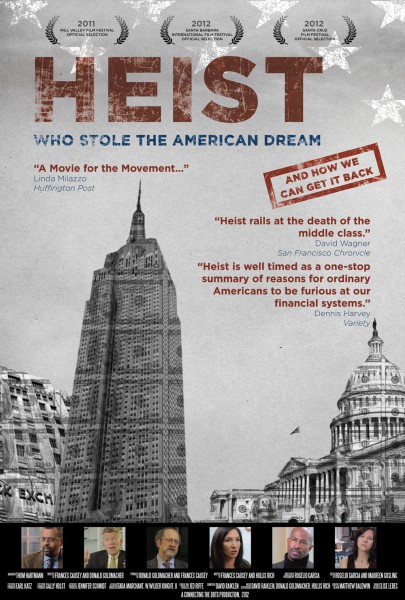
If you like this film, let us know!
Heist: Who Stole the American Dream? is a 2011 documentary film, which argues that government deregulation led to the Great Recession. It was directed and produced by Donald Goldmacher and journalist Frances Causey and narrated by Thom Hartmann. The documentary is partially based on Jeff Faux's 2006 book The Global Class War. The film traces the roots of the Great Recession to Virginia lawyer Lewis F. Powell, Jr., whose 1971 memo to the United States Chamber of Commerce urged corporate America to become more aggressive in molding politics and law.
Filmmakers Goldmacher and Causey started work on Heist in 2006 after they had been investigating the exploitation of undocumented workers near the Arizona border.
Heist explores the premise that Roosevelt's New Deal is being dismantled piecewise. It documents the aggressive push for free trade agreements such as the North American Free Trade Agreement as well as the deregulation of financial products as evidenced by the repeal of the Glass–Steagall Act and the passage of the Commodity Futures Modernization Act of 2000. Heist lays the blame for the crisis on the cozy relationship between politicians and corporations, citing the Reagan administration as well as the actions of Presidents Clinton and Obama. The documentary ends with suggestions for how people might organize, including tactics employed by Occupy Wall Street.
Heist includes interviews and commentary from Senator Bernie Sanders, Representative Donna Edwards, former American Airlines president Robert Crandall, Media Matters for America founder David Brock, Nomi Prins, Van Jones, Robert Kuttner, and journalist David Cay Johnston. The documentary premiered at the Mill Valley Film Festival on October 13, 2011.
^ Karlin, Mark (February 29, 2012). "Who Stole the American Dream in Broad Daylight?". Truthout.
^ Holden, Stephen (March 1, 2012). "Tracing the Great Recession to a Memo 40 Years Ago". The New York Times.
^ Garcia, Amanda (January 26, 2012). "Heist: Who Stole the American Dream? An Interview with Co-Director/Co-Producer Frances Causey". The Santa Barbara Independent.
^ Harvey, Dennis (October 20, 2011). "Heist: Who Stole the American Dream? And How We Can Get It Back". Variety Reviews.
^ Milazzo, Linda (November 3, 2011). "A Movie For The Movement: "Heist: Who Stole The American Dream?"". AlterNet.
^ Mikulan, Steven (April 17, 2012). ""Heist" Chronicles Theft of American Dream". The Frying Pan.
^ Karman, Mal (September 30, 2011). "Feature: Thirty-fourth time's a charm for the Mill Valley Film Festival...". PacificSun.
Comments
Leave comment :
Suggestions of similar film to Heist: Who Stole the American Dream?
There are 13345 with the same cinematographic genres (including 546 with exactly the same 2 genres than Heist: Who Stole the American Dream?), 8199 films with the same themes (including 515 films with the same 3 themes than Heist: Who Stole the American Dream?), to have finally 70 suggestions of similar films.If you liked Heist: Who Stole the American Dream?, you will probably like those similar films :
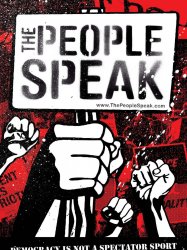
The People Speak (2009)
Origin USA
Genres Documentary, Historical
Themes Documentary films about historical events, Documentary films about politics, Political films
Actors Matt Damon, Morgan Freeman, Danny Glover, Rosario Dawson, Sean Penn, Viggo Mortensen
Rating72%






The Square (2013)
, 1h48Directed by Jehane Noujaim
Origin Egypte
Genres Drama, Comedy, Documentary, Historical
Themes Documentary films about historical events, Documentary films about politics, Political films
Actors Khalid Abdalla
Rating79%





Le film traite de la Révolution égyptienne de 2011 jusqu'à la revolution du 30 juin 2013 contre Mohamed Morsi, et notamment des manifestations s’étant déroulées Place Tahrir.

Freedom Riders (2010)
, 2hDirected by Stanley Nelson Jr.
Origin USA
Genres Documentary, Historical
Themes Films about racism, Documentary films about racism, Documentary films about law, Documentary films about historical events, Documentaire sur une personnalité, Documentary films about politics, Political films
Rating79%





En archives et témoignages exceptionnels, une immersion au jour le jour dans une spectaculaire bataille du Mouvement des droits civiques aux États-Unis, au printemps 1961 : les "voyages de la liberté" pour déségréguer dans le Sud les grandes lignes de bus.
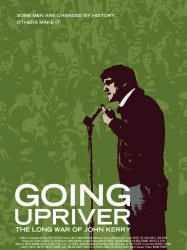 , 1h27
, 1h27Directed by George Butler
Origin USA
Genres War, Documentary, Historical
Themes Documentary films about war, Documentary films about historical events, Documentaire sur une personnalité, Documentary films about politics, Political films
Rating77%





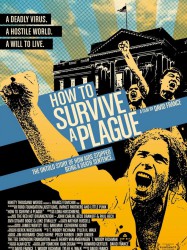
How to Survive a Plague (2012)
, 1h49Origin USA
Genres Biography, Documentary, Historical
Themes Medical-themed films, Films about sexuality, LGBT-related films, Documentary films about historical events, Documentaire sur l'homosexualité, Documentary films about politics, Documentary films about health care, Political films, LGBT-related films, HIV/AIDS in film, LGBT-related film
Actors Larry Kramer
Rating75%





Le film traite des premières années de l'épidémie du SIDA, et des efforts d'Act up et de Treatment Action Group .
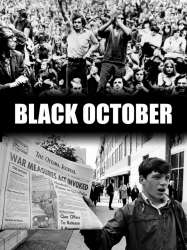
Black October (2000)
Directed by Terence McKenna
Origin Canada
Genres Documentary, Historical
Themes Films about terrorism, Documentary films about law, Documentary films about war, Documentary films about historical events, Documentary films about politics, Documentary films about terrorism, Political films, Documentary films about Quebec politics
Rating67%





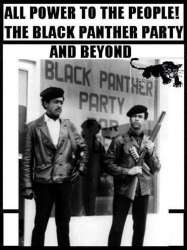
All Power to the People! (1996)
Origin USA
Genres Documentary, Historical
Themes Films about racism, Documentary films about racism, Documentary films about law, Documentary films about historical events, Documentary films about politics, Political films
Actors Dennis Banks, Marlon Brando, Walter Cronkite, Gordon Parks, Ronald Reagan
Rating78%





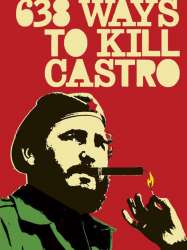
638 Ways to Kill Castro (2006)
, 1h15Origin United-kingdom
Genres Documentary, Historical
Themes Seafaring films, Transport films, Documentary films about historical events, Documentary films about politics, Political films
Rating68%





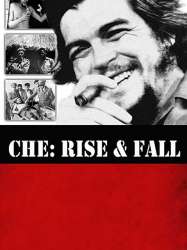
Che: Rise & Fall (2007)
, 1hDirected by Eduardo Montes-Bradley
Origin USA
Genres Documentary, Historical
Themes Documentary films about historical events, Documentaire sur une personnalité, Documentary films about politics, Political films
Actors Eduardo Montes-Bradley
Rating75%





De sa maissance jusqu’à sa mort, de ses années de médecine en Amérique Latine jusqu’à son adhésion au mouvement du 26 juiillet, du tribunal révolutionnaire cubain jusqu’aux jungles du Congo et de la Bolivie : ce documentaire extraordinaire retrace la vie d’Ernesto Guevara, plus connu sous le nom de Che Guevara ou Le Che. Le Dr Alberto Granados, compagnon de moto du Che, ainsi que trois survivants de la guardia de Hierro du Che nous livrent leurs souvenirs et leurs témoignages sur celui qui est devenu une icone pour les mouvements révolutionnaires marxistes du monde entier.
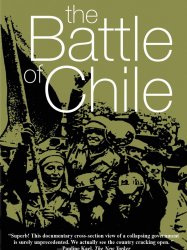
The Battle of Chile: Part I (1975)
Directed by Patricio Guzmán
Genres Documentary, Historical
Themes Seafaring films, Politique, Transport films, Documentary films about law, Documentary films about historical events, Documentaire sur une personnalité, Documentary films about politics, Political films, Films about Latin American military dictatorships
Rating80%





En 1973, alors que Salvador Allende initie un programme de transformations sociales et politiques visant à enrayer la pauvreté, la droite organise une série de grèves. Quand Allende obtient la majorité des suffrages en mars, la bourgeoisie comprend qu’elle ne peut plus avoir recours à des mécanismes légaux, et c’est le coup d’État.
 Connection
Connection